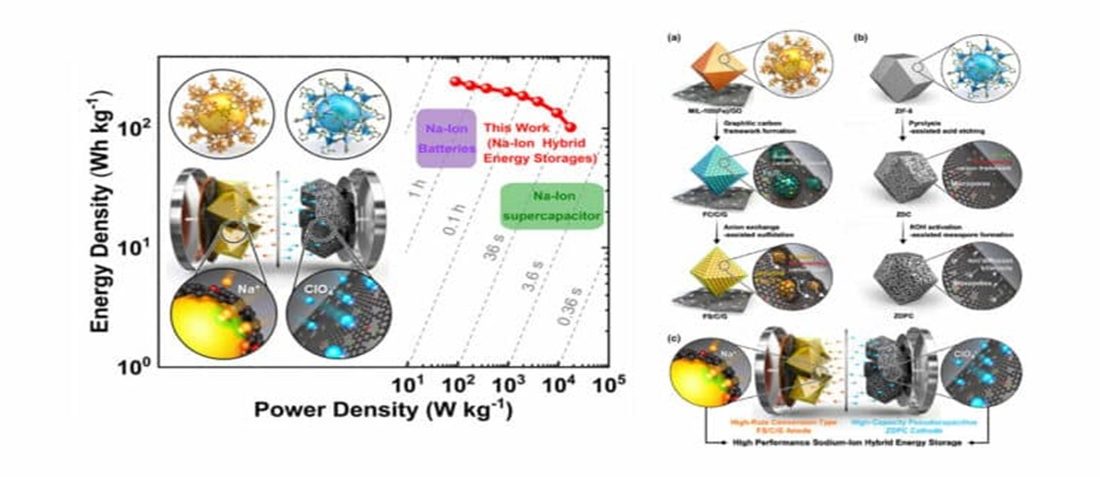
Researchers Announced Hybrid Sodium-Ion Battery-Supercapacitor High Energy Storage with High Power Density
- Posted by doEEEt Media Group
- On July 30, 2024
- 0
Korea Advanced Institute of Science and Technology (KAIST) announced that a research team led by Professor Jeung Ku Kang from the Department of Materials Science and Engineering had developed a record high-energy, high-power hybrid sodium-ion battery-supercapacitor capable of rapid charging.
Sodium (Na), which is over 500 times more abundant than lithium (Li), has recently garnered significant attention for its potential in sodium-ion battery technologies.
However, existing sodium-ion batteries face fundamental limitations, including lower power output, constrained storage properties, and longer charging times, necessitating the development of next-generation energy storage materials.
The innovative hybrid energy storage system integrates anode materials typically used in batteries with cathodes suitable for supercapacitors. This combination allows the device to achieve both high storage capacities and rapid charge-discharge rates, positioning it as a viable next-generation alternative to lithium-ion batteries.
However, the development of a hybrid battery with high energy and high power density requires an improvement to the slow energy storage rate of battery-type anodes as well as the enhancement of the relatively low capacity of supercapacitor-type cathode materials.
To account for this, Professor Kang’s team utilized two distinct metal-organic frameworks to optimise hybrid batteries’ synthesis. This approach led to developing an anode material with improved kinetics by including fine active materials in porous carbon derived from metal-organic frameworks. Additionally, a high-capacity cathode material was synthesized, and the combination of the cathode and anode materials allowed for the development of a sodium-ion storage system, optimizing the balance and minimizing the disparities in energy storage rates between the electrodes.
The assembled full cell, comprising the newly developed anode and cathode, forms a high-performance hybrid sodium-ion energy storage device. This device surpasses commercial lithium-ion batteries’ energy density and exhibits supercapacitors’ power density characteristics. It is expected to be suitable for rapid charging applications ranging from electric vehicles to smart electronic devices and aerospace technologies.
Professor Kang noted that the hybrid sodium-ion energy storage device, capable of rapid charging and achieving an energy density of 247 Wh/kg and a power density of 34,748 W/kg, represents a breakthrough in overcoming the current limitations of energy storage systems. He anticipates broader applications across various electronic devices, including electric vehicles.
The team’s research has been published in the journal Science Direct.
Resource: EPCI Blog
- Space-Grade components available for immediate delivery - April 10, 2025
- Exclusive stock on doEEEt: How to access and request - April 10, 2025
- Managing EEE components for LEO and lower cost space missions - December 17, 2024

0 comments on Researchers Announced Hybrid Sodium-Ion Battery-Supercapacitor High Energy Storage with High Power Density